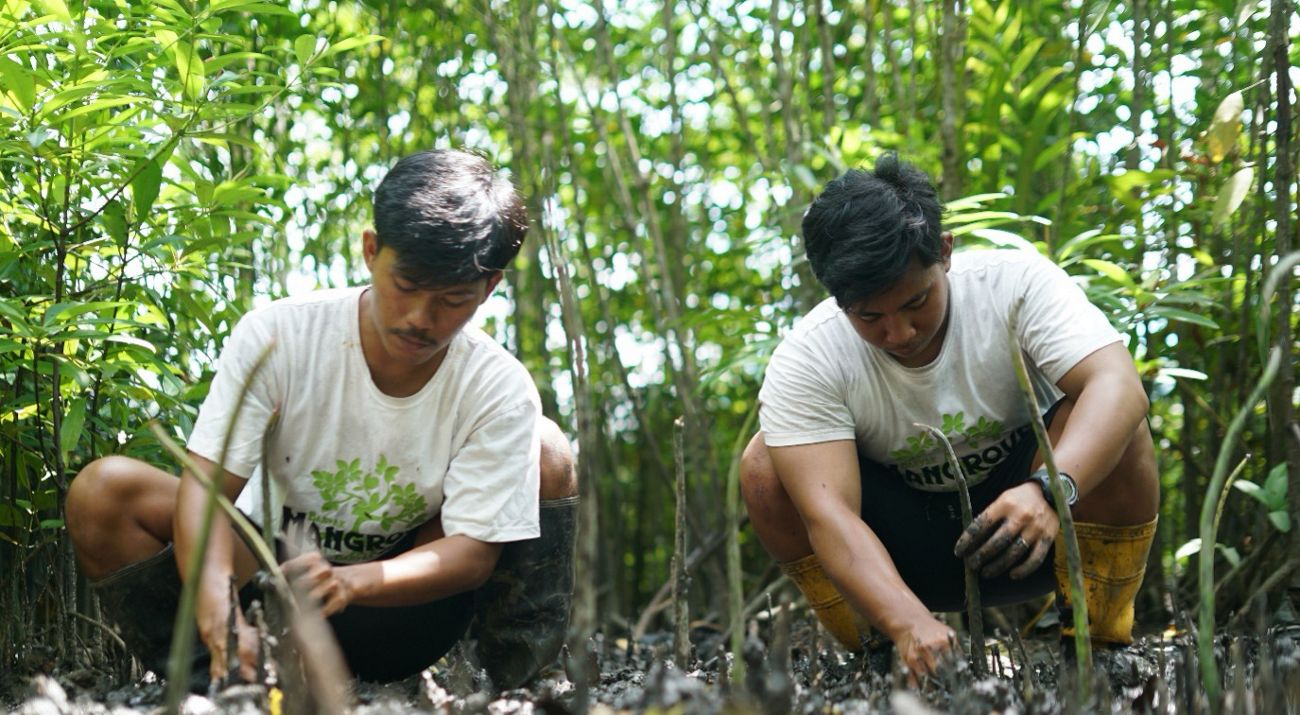Media Contacts
-
Adia Puja Pradana
Communications Specialist Ocean Program YKAN
Yayasan Konservasi Alam Nusantara
Email: adia.pradana@ykan.or.id
In commemoration of World Mangrove Day, which falls on July 26 every year, the Yayasan Konservasi Alam Nusantara (YKAN) and its partners supported the "International Day Mangrove Ecosystem" event organized by the Teluk Semanting Mangrove Management Team, students from the Community Empowerment Learning Work Group (KKN PPM) at Gadjah Mada University, and students from the Field Work Practice (PKL) program at Mulawarman University. This series of events occurred on July 26-27, 2024, in Teluk Semanting Village, Pulau Derawan District, Berau Regency, East Kalimantan.
Themed "From Mangrove to the World: Carbon Capture, Emissions Gone, Enhancing Welfare, and Supporting Sustainable Development," the event aimed to raise awareness, especially among the youth, about the importance of mangroves for the resilience of coastal areas and communities. During the activities, 1,000 mangrove seedlings were planted as a tangible action to preserve the mangrove area.
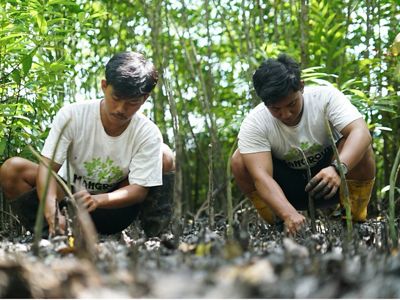
"Recognizing the importance of mangrove conservation, we hope such activities will continue and not just be ceremonial events that are then forgotten. Therefore, we hope we all will remain committed to advocating for, protecting, managing, and restoring mangroves," explained Derawan Island District Head Samsuddin Amba Kadang.
Ida Ayu, Head of the Environmental Pollution and Damage Control Division of the Environmental and Cleanliness Office (DLHK) of Berau Regency, stated that Berau Regency has a mangrove ecosystem covering an area of 86,043 hectares, the largest in East Kalimantan Province. According to her, the mangrove ecosystem protects coastal areas from climate-related disasters like flooding, storms, and erosion.
"Mangroves are ecologically important, both for humans and the environment. Mangrove forests also help mitigate climate change as they can absorb large amounts of carbon, even two to four times more than terrestrial forests," said Ida.
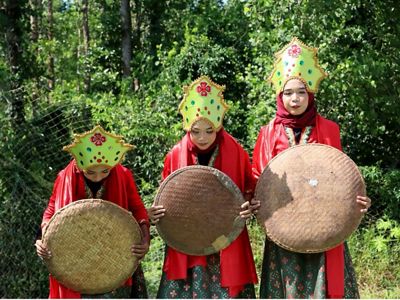
Teluk Semanting Village was chosen as the venue for this event because it has been developing a mangrove ecotourism area since 2017. Through the Teluk Semanting Ecotourism Area, inaugurated by the Berau Regent in 2023, mangrove conservation efforts can be combined with developing the local community's economy based on sustainable nature tourism.
"The mangrove ecotourism concept in Teluk Semanting Village not only aims to protect and restore the mangrove area but also to raise awareness among the community and tourists about the importance of the mangrove ecosystem. Additionally, mangroves in Teluk Semanting Village also bring economic benefits and create new job opportunities for the community, such as women's MSME groups and environmental services," explained Teluk Semanting Village Head Abdul Gani.
Mangrove restoration as a climate change mitigation effort
Despite having the largest mangrove forest area in East Kalimantan, by 2019, 13% or 11,237 hectares of mangroves in Berau Regency had been converted into shrimp ponds. As a result, coastal areas are at risk of being threatened by extreme weather related to climate change. Therefore, YKAN and its partners support the protection, sustainable management, and restoration of mangrove ecosystems through Nature-Based Solutions to combat climate change.
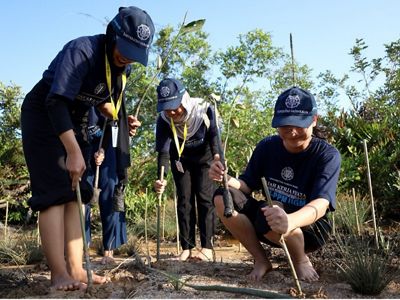
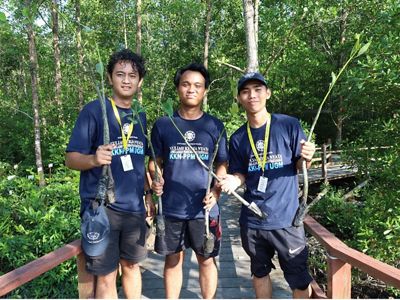
"The mangrove ecosystem has the potential to contribute 6% of the national emission reduction target from the forestry sector by 2030. If the conversion of mangrove areas into shrimp ponds continues to expand, this could have more severe impacts on the ecosystem and coastal communities," said YKAN Senior Manager of Coastal Area Resilience Mariski Nirwan.
Therefore, according to Mariski, YKAN, along with the Ministry of Marine Affairs and Fisheries (KKP) and other partners, introduced the Shrimp Carbon Aquaculture (SECURE) approach in 2020 with pilot locations in Pegat Batumbuk Village and Tabalar Muara Village Pulau Derawan District, Berau Regency. This approach restored around 80% of shrimp pond areas into mangrove areas.
Yayasan Konservasi Alam Nusantara (YKAN) is a scientific-based non-profit organization that has been present in Indonesia since 2014. With the mission of protecting lands and waters as life support systems, we provide innovative solutions to realize the harmony of nature and humans through effective natural resource management, prioritizing a non-confrontational approach, and building a network of partnerships with all stakeholders for a sustainable Indonesia. For more information, visit ykan.or.id.


